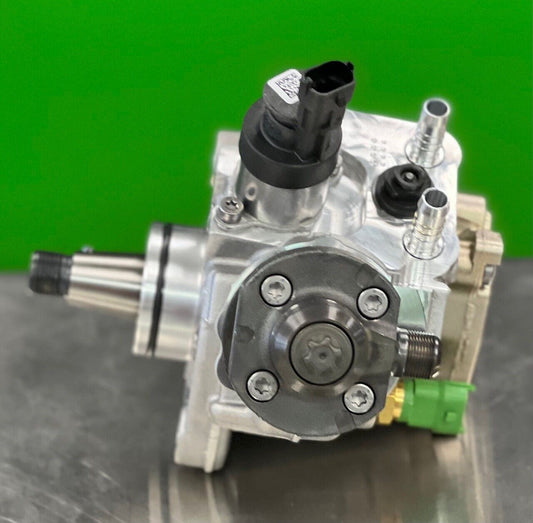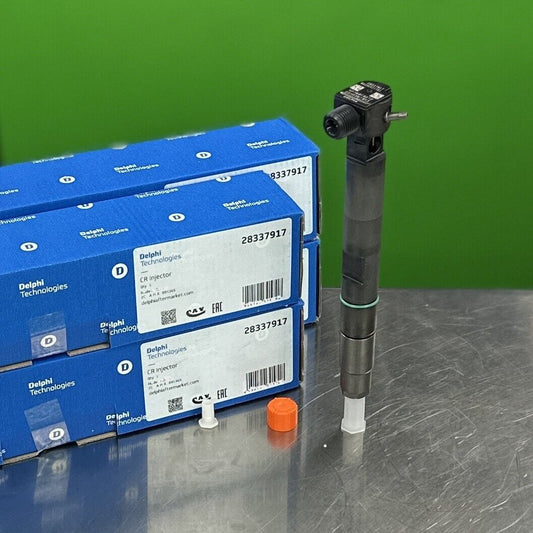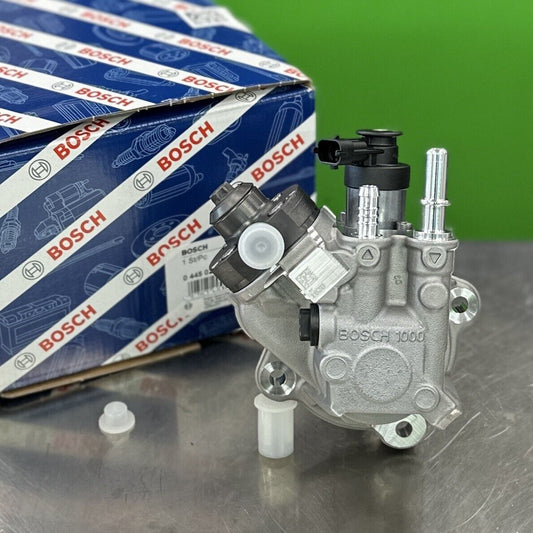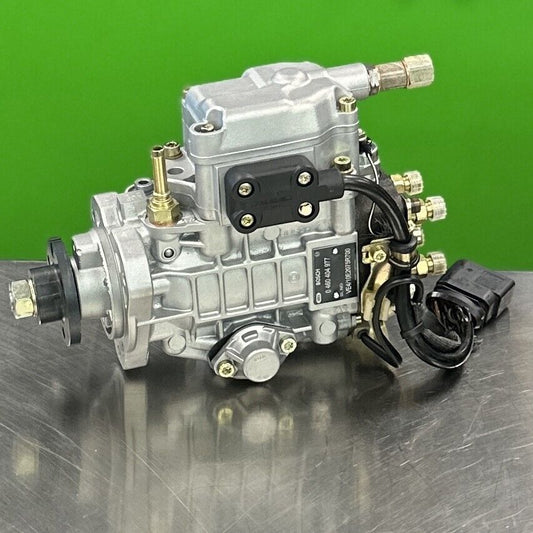Diesel vs Gasoline: Which Is Better for Off-Roading in Utah?
When it comes to off-roading in the challenging terrains of Utah, the choice between diesel and gasoline vehicles can make a significant impact on your adventure. Both fuel types have their strengths and weaknesses, influencing factors like power, efficiency, cost, and environmental impact. Let's dive into the debate of diesel vs gasoline to determine which option reigns supreme on Utah's rugged trails.
Power and Torque Comparison
When it comes to off-roading in Utah, the power and torque of your vehicle play a crucial role in conquering the rugged terrains. Diesel engines are known for their robust torque delivery at low RPMs, making them ideal for crawling over obstacles and navigating steep inclines with ease. On the other hand, gasoline engines typically offer higher horsepower, providing quick acceleration and agility on the trails. It's like comparing a sturdy bulldozer to a nimble sports car – both have their strengths, but which one suits your off-roading style in Utah?
Let's delve into the numbers to understand the power and torque comparison better. Diesel engines excel in torque output, which is essential for off-roading scenarios where low-end power is critical. This high torque allows diesel vehicles to tackle challenging off-road obstacles without breaking a sweat. Conversely, gasoline engines shine in horsepower, offering more top-end power for faster speeds and dynamic maneuvers on Utah's diverse terrain.
Imagine driving a diesel-powered monster truck through rocky trails – its torque prowess effortlessly climbs over boulders and rough terrain. In contrast, a gasoline-powered dune buggy zips through sandy dunes with agility and speed, showcasing the horsepower advantage. The choice between diesel and gasoline ultimately boils down to your off-roading preferences and the type of adventures you seek in Utah's wilderness.
Fuel Efficiency and Range
When it comes to off-roading adventures in Utah, considering the fuel efficiency and driving range of your vehicle is crucial. Diesel engines are known for their superior fuel efficiency compared to gasoline engines, making them a popular choice for long journeys through rugged terrains. The higher energy content of diesel fuel allows for more miles per gallon, giving diesel vehicles an edge when it comes to covering extensive distances without frequent refueling stops.
On the other hand, gasoline engines may have a slight disadvantage in terms of fuel efficiency, but they offer a more convenient refueling experience. Gasoline is more widely available at fuel stations across Utah, ensuring that you can easily top up your tank during your off-road escapades. This accessibility can be a significant factor to consider, especially when exploring remote areas where diesel fuel stations may be scarce.
Consider the driving range of your vehicle as well. Diesel engines typically have a longer range per tank compared to gasoline engines, allowing you to venture further into the wilderness without worrying about running out of fuel. This extended range can provide off-roaders with a sense of security and freedom to explore off-the-beaten-path locations without the constant need to monitor fuel levels.
Cost Considerations
When it comes to off-roading in Utah, cost considerations play a significant role in deciding between diesel and gasoline vehicles. The upfront costs of purchasing a diesel vehicle are typically higher than gasoline counterparts due to the complex engine technology and materials required for diesel engines. However, diesel engines are known for their longevity and durability, potentially offsetting the initial investment over time. On the other hand, gasoline vehicles generally have lower upfront costs but may require more frequent maintenance and fuel expenses, especially when tackling challenging off-road terrains in Utah.
Moreover, maintenance expenses should also be taken into account when evaluating the overall cost of ownership for off-road vehicles in Utah. Diesel engines are often more robust and require less frequent maintenance compared to gasoline engines, which may need more regular tune-ups and repairs, particularly after intense off-road adventures. Considering the rugged landscapes and demanding driving conditions in Utah, the cost of maintenance can significantly impact the overall affordability of owning and operating an off-road vehicle.
Additionally, fuel costs and efficiency play a crucial role in the cost considerations for off-roading in Utah. While diesel fuel tends to be more expensive than gasoline, diesel engines are typically more fuel-efficient, providing better mileage and potentially reducing fuel expenses during long off-road journeys in Utah's vast wilderness. On the other hand, gasoline vehicles may offer lower fuel efficiency, requiring more frequent refueling stops and increasing overall fuel costs, especially when exploring remote off-road trails in Utah.
Environmental Impact
When it comes to off-roading in the rugged terrains of Utah, the environmental impact of using diesel or gasoline vehicles is a crucial factor to consider. Both fuel types have distinct implications on the state's natural landscapes and overall sustainability. Diesel engines are known for their higher emissions of pollutants such as nitrogen oxides and particulate matter, which can have detrimental effects on air quality and ecosystem health. On the other hand, gasoline engines tend to produce lower levels of these harmful emissions but still contribute to carbon dioxide emissions, a significant greenhouse gas.
Utah's diverse ecosystems, from deserts to mountains, are sensitive to pollution and require responsible off-roading practices to preserve their beauty and biodiversity. The choice between diesel and gasoline vehicles can impact the air quality in remote areas and affect wildlife habitats. Off-roading enthusiasts must weigh the trade-offs between power and environmental impact when selecting the fuel type for their adventures in Utah.
Availability of Fuel and Service
When it comes to off-roading adventures in Utah, the availability of fuel and service plays a crucial role in ensuring a smooth and enjoyable experience. Off-road enthusiasts need to consider the accessibility of both diesel and gasoline fuel stations, as well as service and support facilities, before embarking on their rugged journeys through Utah's challenging terrains.
In Utah, the availability of gasoline fuel stations is generally more widespread compared to diesel stations. This means that gasoline-powered off-road vehicles may offer greater convenience in terms of refueling, especially in remote areas where diesel stations are scarce. Additionally, gasoline vehicles are often easier to refuel quickly, making them a practical choice for off-roading enthusiasts who value efficiency and convenience on their adventures.
On the other hand, diesel fuel stations are also readily available in Utah, particularly along major highways and popular off-road routes. Diesel engines are known for their fuel efficiency and torque, making them ideal for long-distance off-roading excursions where a higher driving range is essential. For off-roaders planning extended trips through Utah's vast wilderness, the availability of diesel fuel stations can be a determining factor in choosing the right vehicle for their adventures.
Frequently Asked Questions (The title must be written in English (US))
-
Is diesel or gasoline better for off-roading in Utah?
Both diesel and gasoline vehicles have their pros and cons when it comes to off-roading in Utah. Diesel engines are known for their torque and fuel efficiency, making them great for crawling over tough terrain. On the other hand, gasoline engines offer more power and acceleration, which can be beneficial for navigating steep inclines or quick bursts of speed. Ultimately, the choice between diesel and gasoline will depend on your specific off-roading needs and preferences.
-
Which type of fuel is more cost-effective for off-roading in Utah?
When considering cost, it's essential to factor in not just the price of fuel but also maintenance and overall ownership expenses. Diesel fuel typically costs more than gasoline, but diesel engines are known for their durability and longevity, which can lead to lower maintenance costs in the long run. Gasoline vehicles may have lower upfront costs, but they can be more expensive to maintain over time. So, the cost-effectiveness of diesel versus gasoline for off-roading in Utah will depend on your budget and how much you plan to use your vehicle.
-
Are diesel engines more environmentally friendly than gasoline engines for off-roading in Utah?
While diesel engines are generally more fuel-efficient than gasoline engines, they also tend to produce higher levels of nitrogen oxides and particulate matter, which can have negative environmental impacts. Gasoline engines, on the other hand, emit fewer pollutants but are less efficient in terms of fuel consumption. When it comes to off-roading in Utah, considering the environmental impact of your vehicle choice is crucial, and both diesel and gasoline vehicles have their trade-offs in this regard.



